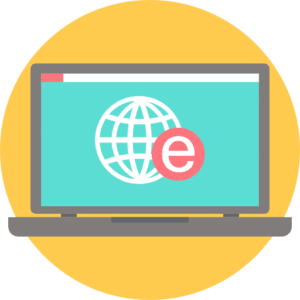Social media has become an integral part of our lives, connecting us with our friends, family, and interests. We use it to share our thoughts, feelings, and experiences, as well as to learn, entertain, and inspire ourselves. However, social media also has a dark side, which can pose serious risks to our well-being, privacy, and security. Here are some of the hidden dangers of social media and how to avoid them:
1. Addiction and mental health issues
One of the most common and obvious dangers of social media is addiction. Social media can be addictive, because it stimulates the reward system in our brain, releasing dopamine and serotonin, which make us feel good. The more we use social media, the more we crave these positive feelings, and the more we neglect other aspects of our lives, such as our work, hobbies, or relationships.
Moreover, social media can also affect our mental health negatively, by causing stress, anxiety, depression, loneliness, or low self-esteem. This can happen for various reasons, such as:
- Comparing ourselves to others, and feeling inadequate or inferior
- Exposing ourselves to negative or toxic content, such as hate, violence, or fake news
- Losing touch with reality, and living in a virtual world
- Isolating ourselves from real social interactions, and losing our social skills
- FOMO (fear of missing out), and feeling left out or excluded
To avoid these dangers, we should limit our time and frequency of using social media, and set healthy boundaries for ourselves. We should also be mindful of what we consume and share on social media, and avoid engaging in or spreading negativity. We should also balance our online and offline lives, and maintain meaningful connections with our real friends and family.
2. Privacy and data breaches
Another danger of social media is privacy and data breaches. Social media platforms collect a lot of personal information from us, such as our name, age, gender, location, interests, preferences, contacts, messages, photos, videos, and more. They use this information to provide us with personalized services, such as targeted ads, recommendations, or notifications. However, they also share this information with third parties, such as advertisers, marketers, or researchers, without our consent or knowledge.
Furthermore, social media platforms are not immune to cyberattacks, which can expose our personal information to hackers, who can use it for malicious purposes, such as identity theft, fraud, blackmail, or harassment. This can have serious consequences for our reputation, finances, or safety.
To avoid these dangers, we should be careful of what we post and share on social media, and avoid revealing sensitive or confidential information. We should also review and adjust our privacy and security settings, and use strong passwords and encryption tools. We should also be wary of phishing or scamming attempts, and report any suspicious or unauthorized activity on our accounts.
3. Cyberbullying and online harassment
A third danger of social media is cyberbullying and online harassment. Cyberbullying is the use of electronic means, such as social media, to bully, intimidate, or humiliate someone. Online harassment is the use of electronic means, such as social media, to threaten, abuse, or stalk someone. Both cyberbullying and online harassment can have devastating effects on the victims, such as emotional distress, psychological trauma, or even suicide.
Cyberbullying and online harassment can happen for various reasons, such as:
- Differences in opinions, beliefs, or values
- Jealousy, envy, or resentment
- Revenge, anger, or hatred
- Boredom, amusement, or entertainment
- Peer pressure, group mentality, or anonymity
To avoid these dangers, we should be respectful and empathetic towards others on social media, and avoid engaging in or encouraging cyberbullying or online harassment. We should also block, report, or ignore any cyberbullies or online harassers, and seek help from our friends, family, or authorities, if needed. We should also support and stand up for the victims, and show them that they are not alone.
Social media can be a great tool for communication, education, and entertainment, but it can also be a source of harm, danger, and trouble. By being aware of the hidden dangers of social media and how to avoid them, we can use social media safely, responsibly, and wisely, and enjoy its benefits without compromising our well-being, privacy, or security.





